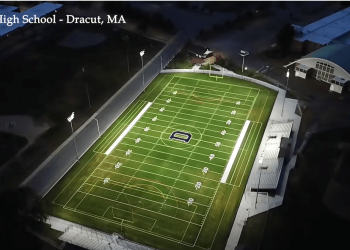ROCHESTER, Minn.- It would confuse anyone if a machine learning engineer is given access to the cardiac operating rooms of a renowned American hospital. Recently, a unique action took place in the Mayo Clinic, where, Zachi Attia, the co-director of the artificial intelligence team created by Dr. Paul Friedman, from the Mayo cardiology department, faced an acid test of watching the live procedure of doctors inserting a pacemaker inside the patient.
As technology and healthcare combines to provide an effective and optimized solution to the patients, there has been an increase in innovations at the leading hospitals across the country. Here, at Mayo clinic, the 33-year-old AI engineer, Zachi Attia, is a part of the nation’s most ambitious AI projects where the project involves revamping the heart disease treatment with the help of artificial intelligence. Working along with the physicians, he has already built the algorithms with a significant ability to unmask the abnormalities before the patient experiences the symptom.
It has been a tough task for the engineers involved in this project, as they had to see that algorithms should work on real patients with complex medical issues and diverse backgrounds. The design must even fit the routines of nurses and doctors. The data and information have to be clinically meaningful, comprehensible and delivered on time so that the practitioners can use it for providing the right health care to the patients. The other daunting task, which the AI developers have to perform is winning the physician’s trust in the algorithm. Attia has been one of the five engineers and scientists who has been with the physicians to observe different procedures, and discuss the different ways which AI can use for addressing the gaps in the process. Within three years, the team published more than a dozen studies on the AI in cardiology. The experimental team is now field-testing algorithm for detecting the weak heart pump in other care clinics.
It has been found that every year thousands of patients die in the US, from the cardiac illness, which could have been prevented if treated on time. This is where artificial intelligence comes into the picture. The team of Zachi Attia, with the help of the algorithm, has been understanding the anatomy of the heart and the abnormalities intensively.
As data is important for treatment, the maximum data which is derived from the electrocardiograms (EKGs) is used for evaluating the heart function by recording the pulses that cause a heartbeat. Around 250,000 EKGs are being performed every year at Mayo, having a digital dataset of around 7 million records. Using the AI-enabled EKG, the physicians can identify the symptoms before they appear to intervene for averting a major stroke. Both Attia and Friedman used the ML learning system known as the convolutional neural network. As per the study published in August, the algorithm easily identified the patients with a-fib with an 80% accuracy rate. It detected the hidden pattern when the atrial fibrillation had increased significantly. The algorithm is now successfully identifying the patients who are not aware of this hidden symptom. Getting real results was a challenge, which is made successful with this test.





